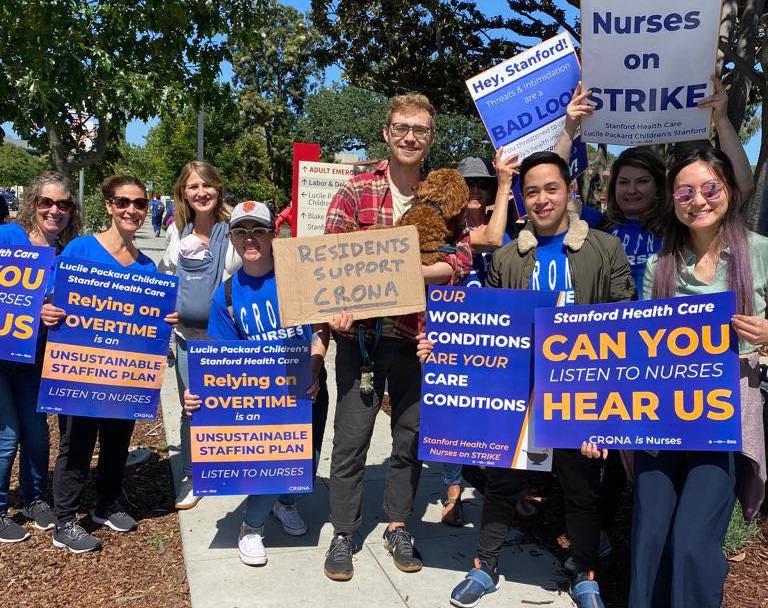A 2021 UCSF study estimated a shortage of more than 40,000 full-time registered nurses in California, part of what it identified as a longer-term trend that has been accelerated during the COVID-19 pandemic.
Meanwhile, a survey conducted by CRONA in November found that 45% of Stanford nurses had considered leaving their jobs due to a lack of resources, training and support staff.
Kimberley Reed, a union representative who has worked for roughly 18 years as a nurse in Stanford Hospital’s cardiac intensive care unit, said many nurses simply have been pushed to the brink.
“There’s been high turnover, an increased amount of overtime that we’re using, decreased resources available to us,” she said. “And there’s really no time for us to rest and recharge. All of this is not sustainable.”
Reed said she’s particularly encouraged that the new contract includes better mental health support and pay incentives for nurses working with severely ill patients in emergency departments, intensive care units and critical care transport teams.
“The reason that is so important is because it’s been really, really hard for the institution to be able to get nurses in those areas,” she said. “So this incentive program will hopefully retain the nurses who have been here through the pandemic. And it will also incentivize experienced nurses who want to come to Stanford to work in those areas.”
Pressure mounted against hospital management heading into the strike, with nurses receiving strong support from elected officials across the Peninsula and South Bay. U.S. Sen. Alex Padilla also visited the picket line Friday, calling nurses “real-life superheroes.”
In a statement, Stanford said it was pleased to reach a deal that reflects “shared priorities and enhances existing benefits supporting our nurses’ health, well-being, and ongoing professional development.”
CRONA officials agreed Monday that both sides had shared goals, but suggested that they approached the negotiations in notably different ways.
“Sticking points really had to do with sort of a philosophical difference in how we approach things,” Stormberg said. “It wasn’t so much that there was a specific issue, rather that it was a complete package of changes that we were working on.”
This story includes reporting from KQED’s Sara Hossaini and Eli Walsh of Bay City News.

